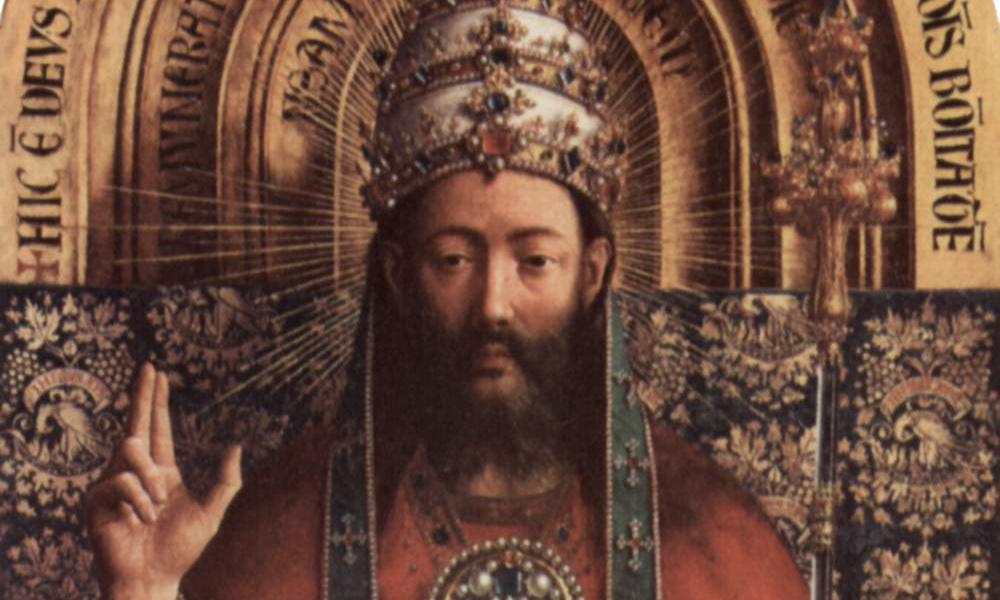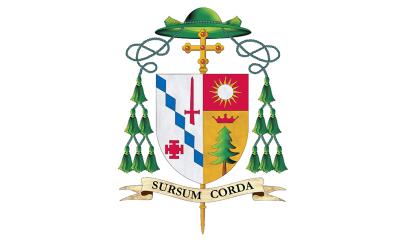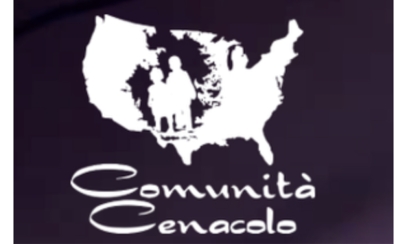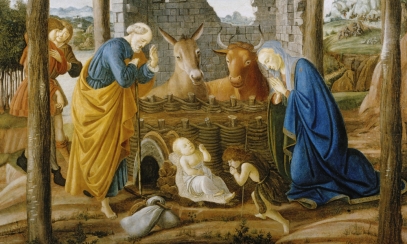
‘We Are the Sum of the Father’s Love …’
Bishop Raica Installs St. Thomas’ New Pastor
Bishop Raica Installs St. Thomas’ New Pastor
On Nov. 19, Bishop Raica celebrated Mass at St. Thomas the Apostle Catholic Church in Montevallo. During the Mass, the bishop installed Father Brad Jantz as pastor. The complete text of his homily follows herein.
On Nov. 19, Bishop Raica celebrated Mass at St. Thomas the Apostle Catholic Church in Montevallo. During the Mass, the bishop installed Father Brad Jantz as pastor. The complete text of his homily follows herein.
Dear sisters and brothers, how happy I am to be here today to take part in this simple but evocative rite of installing a pastor! Not many parishioners have the opportunity to experience this rite. So, it is a privileged moment for all of us. It is straightforward and not long, but you will help out at the right time as we formally install Father Brad as the pastor here at St. Thomas the Apostle.
A pastor has the important responsibilities to teach, to sanctify, and to govern. Each has its own important dimensions. In his writings, homilies, leading classes, and reflections, a pastor teaches. In sanctifying, – in his celebration of the sacraments or those important moments in which we acknowledge through ritual and action that Christ is truly present – we experience concretely His grace in our lives. In governing – also known as administration or shepherding – a pastor oversees the welfare of the temporal goods and the parishioners of a parish. All are important to establish not only what we might call the institutional dimension of the Body of Christ, the Church, but also to make way for the charismatic dimension of the Church – where the gifts of the Spirit are poured out on the hearts and lives of those who come where we can be renewed and refreshed, deepening our relationship with Christ. So, Father Brad, you have a big task as your ministry creates the climate whereby Christ can be known and experienced. Primarily and practically, your task is to be here to listen attentively to all but also to your collaborators in the pastoral councils and finance councils who have their ear to the ground and finger on the pulse of the parish. They will aid you in governing the parish. I urge you to listen also to the hearts of those you serve. A parish is a place where many joyful and significant events occur in one’s life journey. At the same time, it is also the place where there are wounds and hurts and dramatic events in need of accompaniment, healing, and consolation. What is needed above all is to know that we are not in any place or an alien place but a familiar place that welcomes, especially those who may be on the margins of life, saying, “You have a place here. You are welcome here. Together we are brothers and sisters!” It is a place where we are not lost but found; not abandoned but loved; not alone, but part of a great community that comprises the presence of Christ in this area in pilgrimage back to the Father. It is a great tapestry of varied colors and textures, of hope and mercy and life.
On this final Sunday of our liturgical year, we look ahead to prepare for our Thanksgiving holidays. I trust that you will all have some good quality family time as you tuck into your Thanksgiving meal. We truly look forward to this time of year because of the great memorable family experiences. It is a moment to give things for the blessings we have received from God, gathering around a table, enjoying the company of one another, and renewing our familial bonds. From Thanksgiving, we segue immediately into the preparation we make for receiving and welcoming our Lord at Christmas time. Oh, yes, we don’t forget about Black Friday, Small Business Saturday, and so on, leading up to Giving Tuesday, all designed to transition into our Advent/Christmas season.
If you will permit me for a moment, on this the last Sunday of our liturgical year, we ought to remind ourselves that we have been accompanied throughout the year by the evangelist St. Luke. St. Luke’s Gospel brings us one of the most cherished Christmas stories touching our imaginations with choruses of angels, wayward shepherds, and the poverty of a lowly stable in Bethlehem.
It is also the Gospel of the lost and found – the lost coin, the lost sheep, and the prodigal Son. St. Luke’s Gospel is one filled with mercy. Perhaps, one of the more gripping and dramatic episodes is the one we have just heard in the Gospel read a few moments ago. At this culmination point, we find ourselves going from the crib to the cross – from the moment in which the shepherds, accompanied by angelic choruses, make their way to the crib moving us to the ignominy of the cross illustrated in this Gospel today. There are the soldiers jeering and the cynical criminal on Jesus’ left. Along with him was another criminal on his right whose life also was less than exemplary and who, like Christ, was sentenced to death on a charge of capital crime. Perhaps, in my own reflection, here was a man, whom we identify ironically as the good thief, that God was relentlessly pursuing – and he kept running away. And the only way that God could get to him was when he was pinned down on the cross. He couldn’t run anymore. Yet, he could never be closer to the Lord than in this moment. I often wonder if I was next to the Lord, what question would I have? What would I want to know? What would that experience be like? What was on His heart? What words would He want to hear?
Here is this so-called “criminal,” who merely asked, “Lord, remember me when You come into Your Kingdom.” And then, in that moment of silence what would the response of Jesus be? Would it be, “You, wretch, you committed terrible crimes – you deserve what you’re getting?” I can only imagine that Christ, the King of kings, crowned with thorns in all of His horrific suffering, could still look into the heart of that man who was condemned and see a glimmer of hope and desire. And then to hear those words, “This day, you will be with Me in paradise.” An unexpected act of mercy once again!
There’s nothing more beautiful and outrageous at the same time in all of this. Beautiful because even, then, at this moment of desperation, our Lord demonstrates that His mercy is stronger than sin and that, as Pope St. John Paul II would say, “We are not the sum of our weaknesses and failures; we are the sum of the Father’s love for us and our real capacity to become the image of His Son.” Here was a vivid display of God’s love and mercy. Outrageous because many of us strive all of our lives to live a life acceptable to the Lord, hoping that the day of judgement won’t be so harsh. Yet, here is this criminal who had one chance and snuck into Heaven. It’s like he stole Heaven! But God’s mercy is like that – for some of us it takes a lifetime, or, like St. Paul or this criminal whom we know as St. Dismas, it took an instant. All we can say is, “Lord, Your ways are not our ways. Thanks be to God!”
There it is! We can become the image of His Son. We can live as His Son – a life of love, a life of mercy as He demonstrated through the Gospel. It is a life that offers us the incredible opportunity to have a journey of a lifetime not stuck on the wrongs we have done but on the experience of hope, mercy, and life. Our Lord offers us this hope as we turn our lives over to Him. Only Jesus, all yours – we say! In this way, we have the prospect to experience a freedom like none other – not a freedom from the burdens of our daily burdens but a freedom that comes with belonging to the only One Who promises us life and the gifts of His grace and that reaches for a fulfillment that we can never know in this life. I pray that I, too, can hear these words: “This day you will be with Me in paradise.” What we are invited to is beyond our imagining and yet characterized by the fulfilment of our deepest desires because we know to Whom we belong.
So, today we reach the final Sunday of our liturgical year – a pinnacle, an apex, a zenith, a festival of the only One Who is the common thread in our lives, Christ Himself, Son of God, Son of Mary Who is the Lord of lords and King of kings, our world’s salvation, and our only hope.



